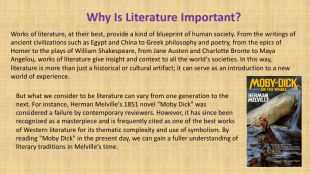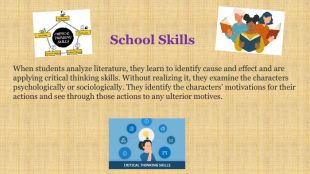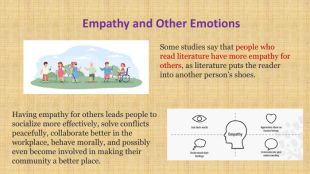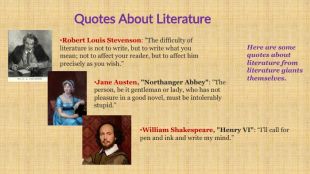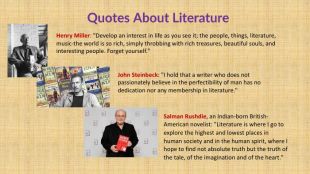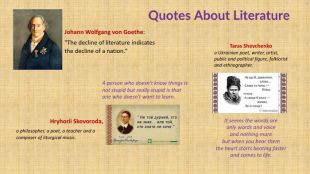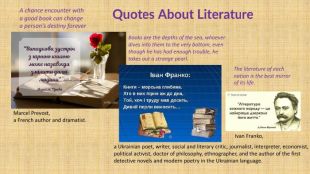About literature in general (Презентація)
Про матеріал
Презентація висвітлює питання: What literature can teach us, Literary fiction vs Genre fiction, Why literature is important, Quotes about literature. Презентація також містить посилання на відео "An introductory to the discipline of Literature" Перегляд файлу
Зміст слайдів
Середня оцінка розробки
Оцінки та відгуки
pptx
Оцінка розробки


Безкоштовний сертифікат
про публікацію авторської розробки
про публікацію авторської розробки
Щоб отримати, додайте розробку
Додати розробку
























